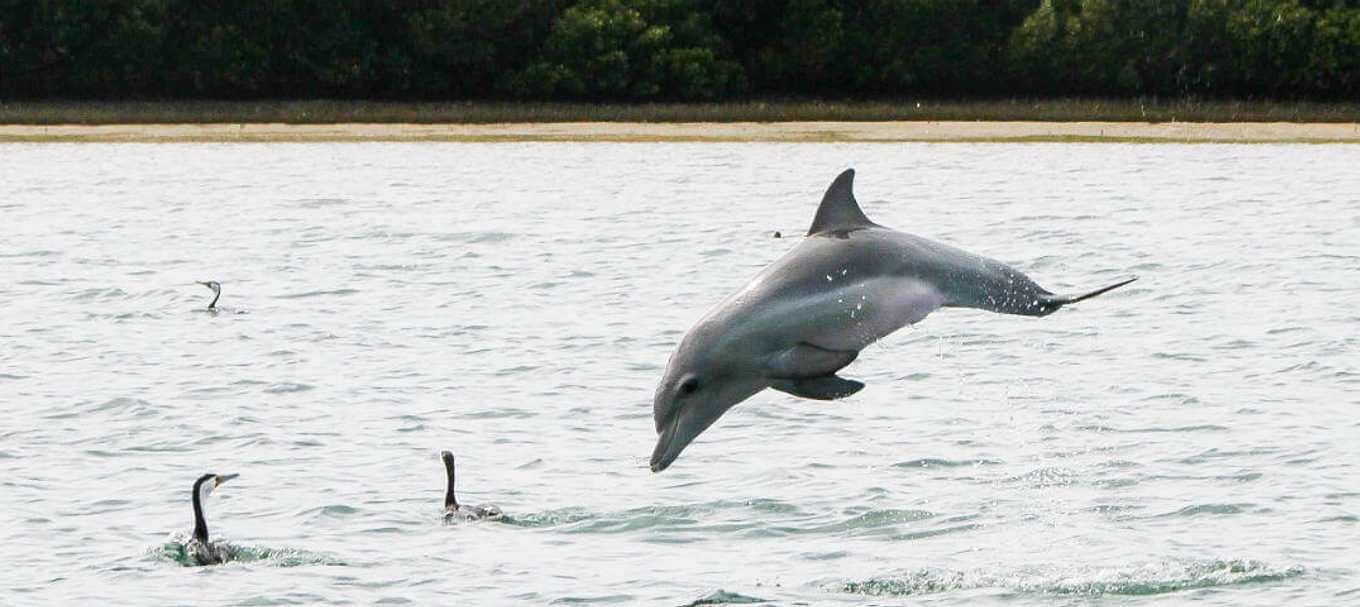
5 things you’ll find at Adelaide’s dolphin sanctuary
Located just half an hour’s drive from the Adelaide CBD in the Port River and Barker Inlet, the Adelaide Dolphin Sanctuary is a great location for wildlife-watching, a dolphin boat cruise, casual strolls or even kayaking.
It’s one of the few places in the world where you can see wild dolphins living so close to a city – and it even gets the occasional visit from southern right whales and humpback whales.
There’s plenty to keep a look-out for on your next visit to the sanctuary. Here’s a quick guide:
1. Long-nosed fur seals (Arctocephalus forsteri)
Between 1800 and 1830, long-nosed fur seals almost became extinct as a result of hunting. It took almost 140 years for numbers to recover and now there’s about 100,000 of them living around South Australia.
On one cold winter’s day in 2016 more than 100 long-nosed fur seals were seen in the Outer Harbor breakwaters – so keep your eye out if you’re visiting.
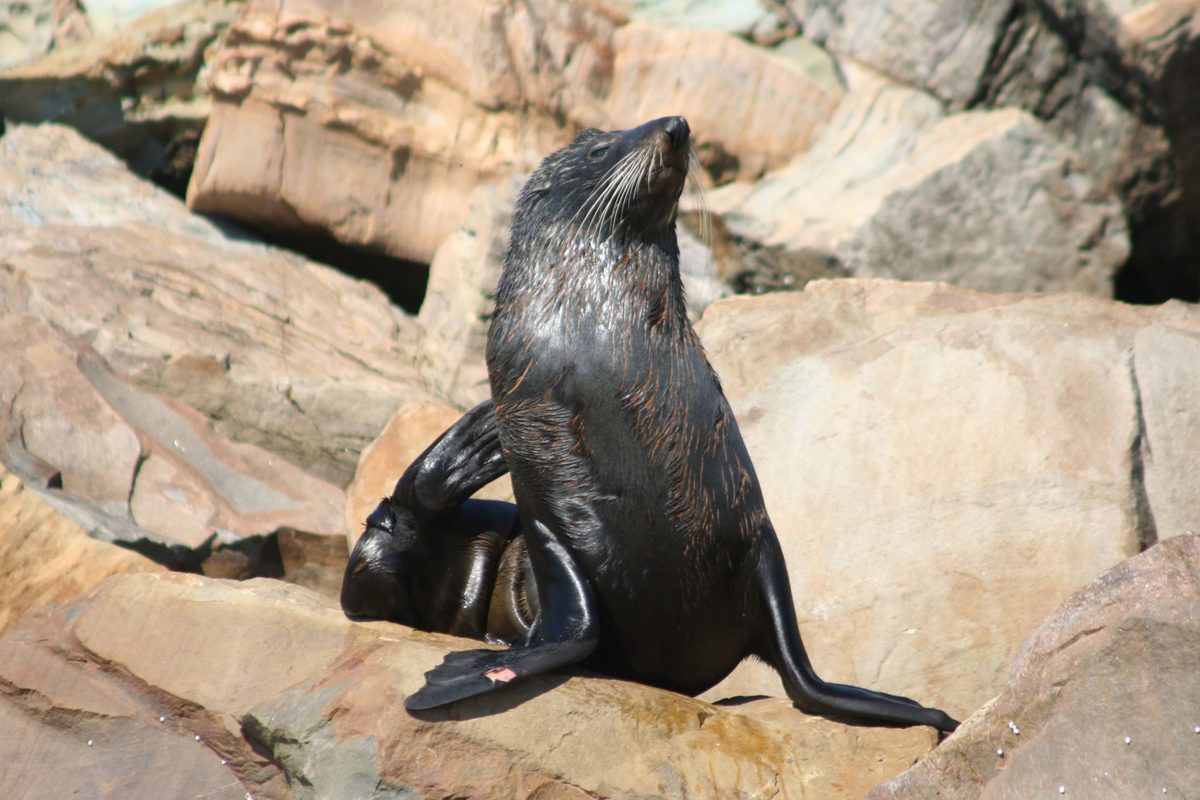
2. Southern eagle rays (Myliobatis tenuicaudatus)
The southern eagle ray is found in southern temperate waters of Australia and is recognised by its unique greyish blue spots and blunt snout.
Eagle rays are a type of fish and can grow up to 3 metres in length and weigh up to 50 kilograms. Unfortunately these majestic animals are threatened by marine debris and fishing, often getting caught by commercial and recreational fishers.
Until recently southern eagle rays were known as Myliobatis australis, but they are now called Myliobatis tenuicaudatus.
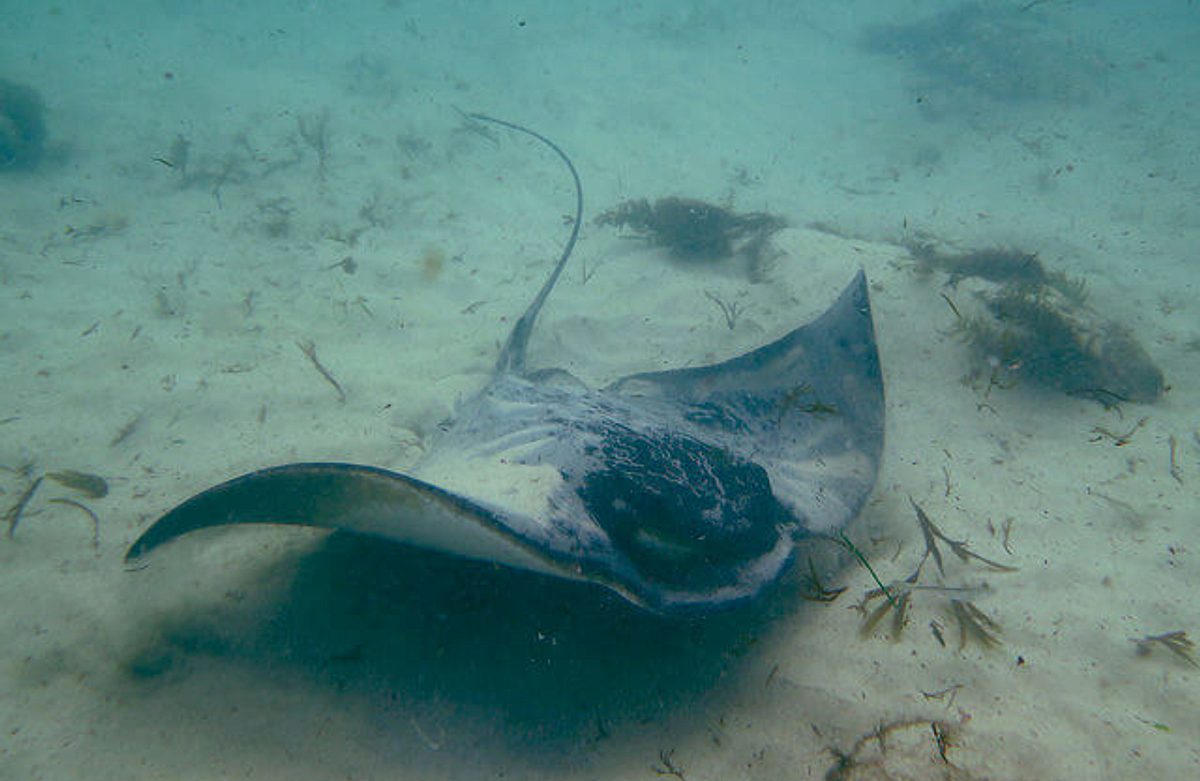
3. Australian sea lions (Neophoca cinerea)
The Australian sea lion is one of the rarest sea lions in the world with about 85 per cent of the entire population found here in SA.
They are an endangered species with only 10,000-12,000 remaining, and are protected in Australia.
For a fascinating insight into the life of Australian sea lions, check out the video in our post from World Oceans Day.
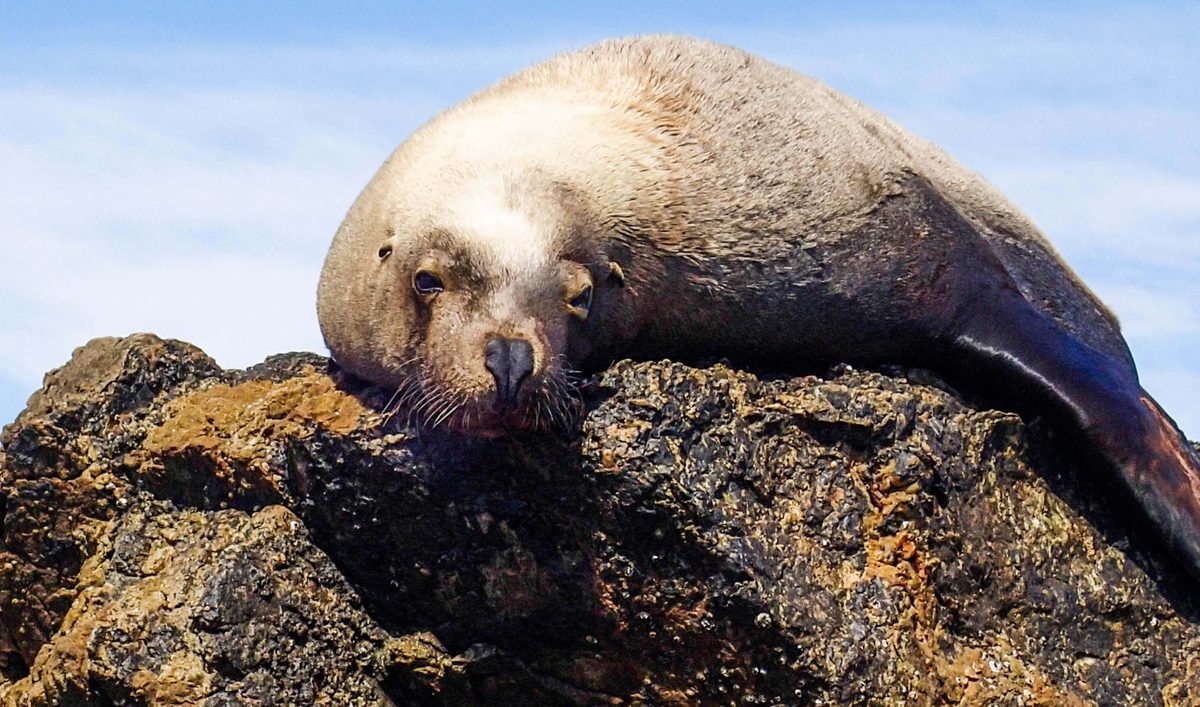
4. Mangroves
How old do you think a forest can be? 10 years? 20 years? 1000 years? The mangrove forest in the Adelaide Dolphin Sanctuary is actually 10,000 years old.
Found along the shoreline, mangroves in the sanctuary are part of the habitat that the dolphins rely on and are home to a wide variety of fish that they probably eat.
There’s only one type of mangrove found in SA – the grey mangrove (Avicennia marina), which can grow to a maximum of 5m tall.

5. Dolphins
Of course, the Adelaide Dolphin Sanctuary would be wrongly-named if it wasn’t home to at least a few of these gorgeous creatures. In fact, there are around 20 dolphins that live in the sanctuary permanently and about another 300 that are known to visit regularly.
Some of the sanctuary’s resident dolphins travel as far south as Glenelg and one pair can often be seen swimming in the nearby Patawalonga Lake.
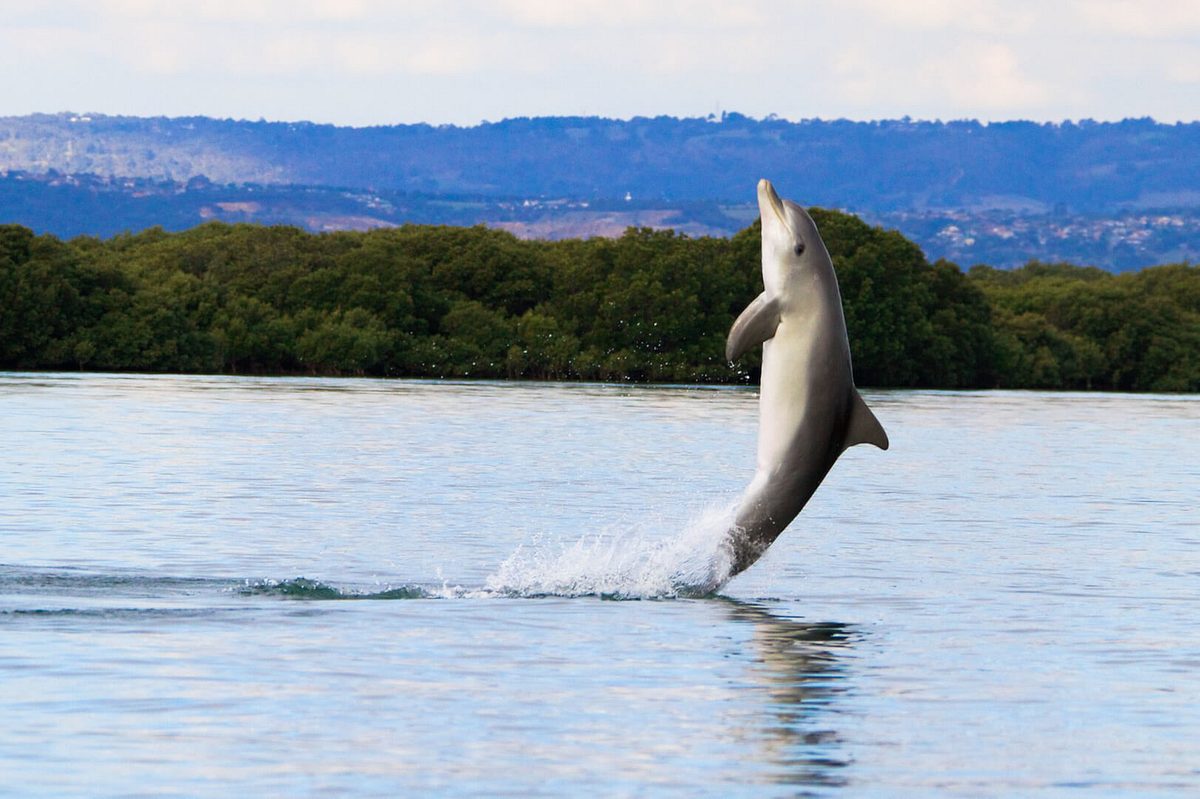
Indo-Pacific bottlenose dolphins (Tursiops aduncus) are the most frequently sighted dolphins. These beautiful creatures can grow to 2.5m long and have a large dorsal fin.
If you’re really lucky, you might also see common bottlenose dolphins (Tursiops truncatus) or short-beaked common dolphins (Delphinus delphis), but this would be pretty rare because they’re usually found offshore in deeper water.
Want to know more?
There are plenty of ways to get a better insight into this suburban sanctuary:
- Check out the display at the Port Adelaide Enfield Visitor Centre, which shows the hotspots for wildlife-spotting.
- Get an insider’s perspective on what it’s like to work at the sanctuary and some of the interesting things staff have seen there.
- Learn how it overlaps with the Adelaide International Bird Sanctuary, which is part of the East Asian-Australasian Flyway – a critical route for migratory birds.
Remember, if you see any dolphins, sea lions or other marine mammals, don’t be tempted to feed them. You might think you’re doing them a favour but it can actually have negative consequences, such as animals becoming reliant on humans, or trying to steal fish from fishing lines. And if you’re in a kayak or boat, keep your distance and let the dolphins come to you.
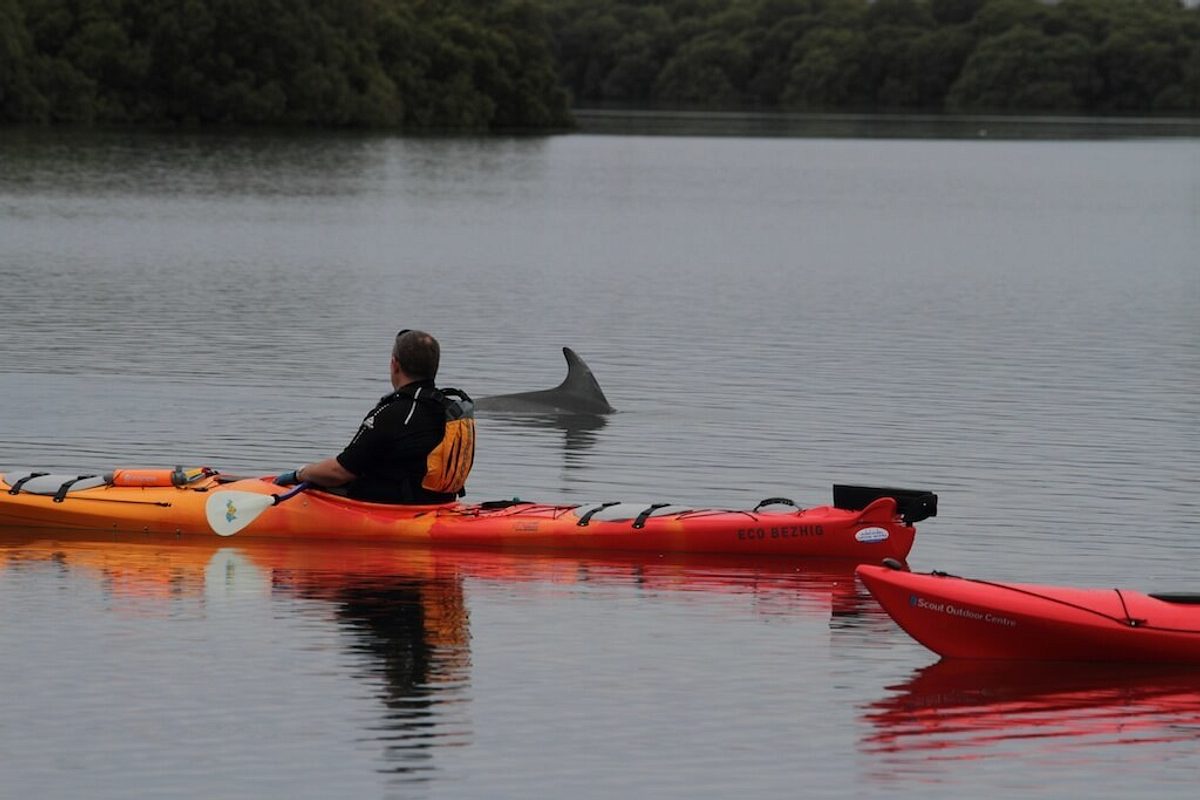
On your next visit, take some snaps, post them to Instagram and tag #adelaidedolphinsanctuary. If you’re a dolphin-lover, you might like to get involved in theAdelaide Dolphin Sanctuary Action Grouptoo.
This story was originally posted in July 2017





